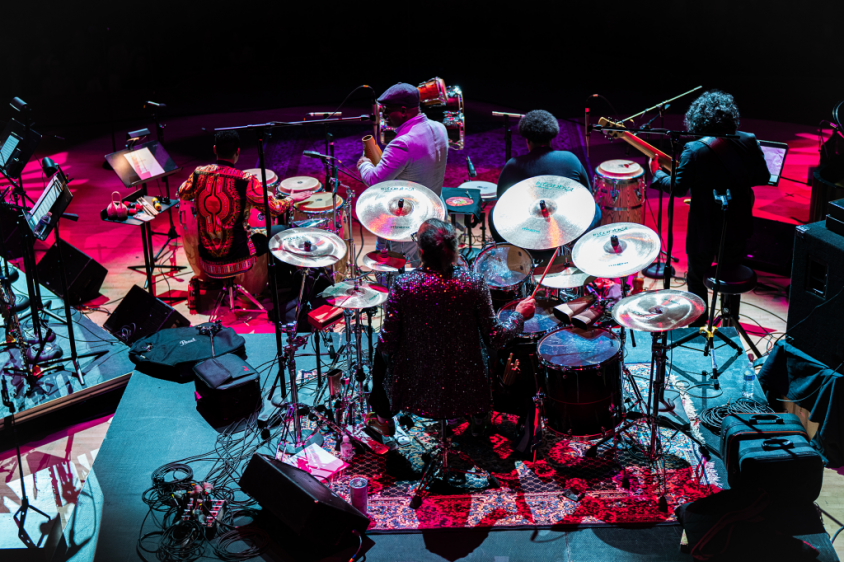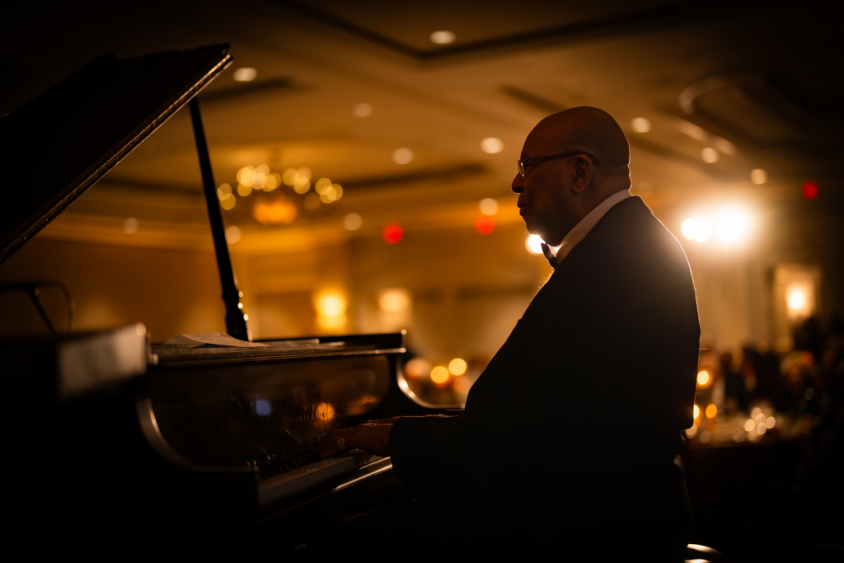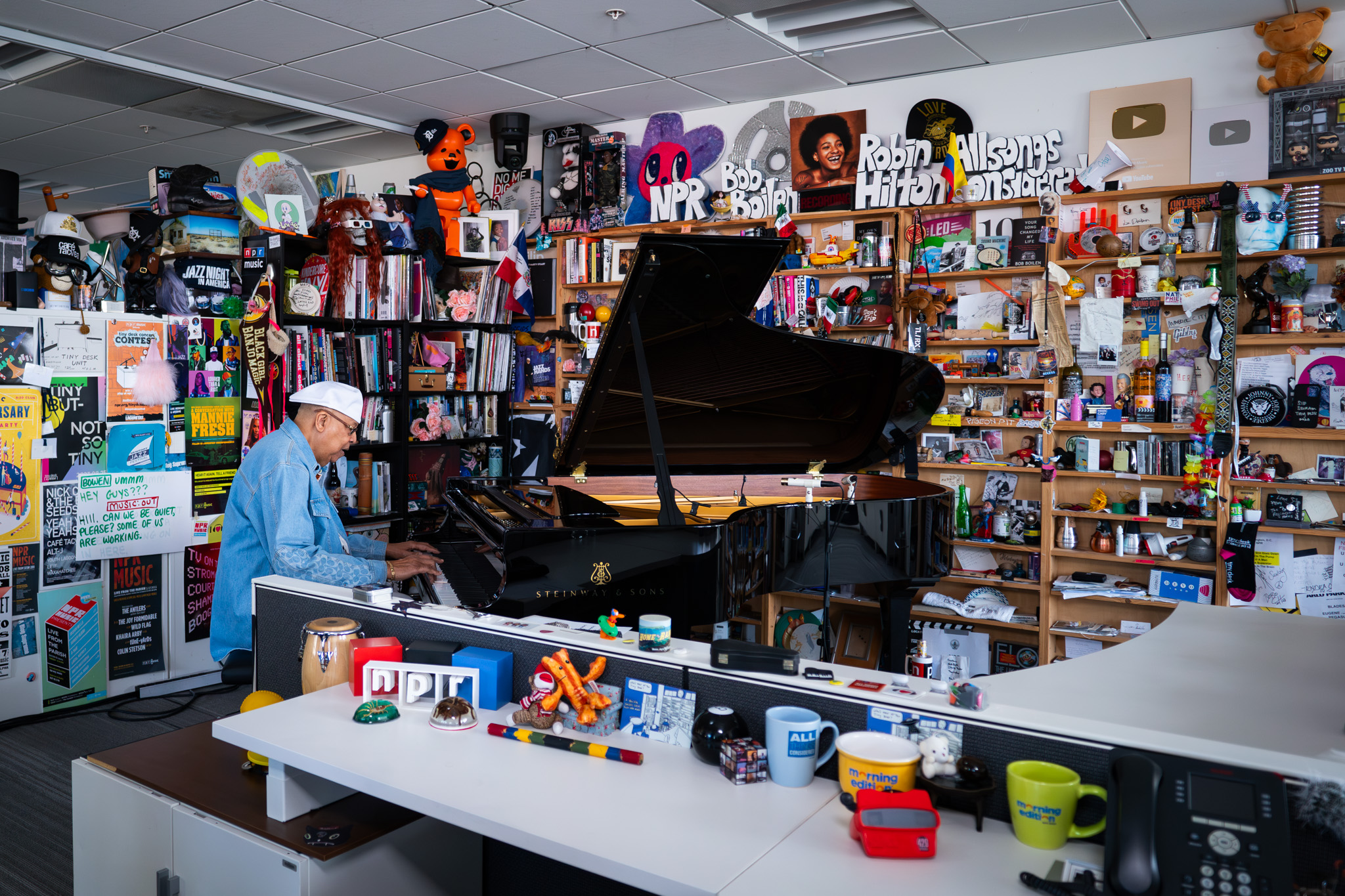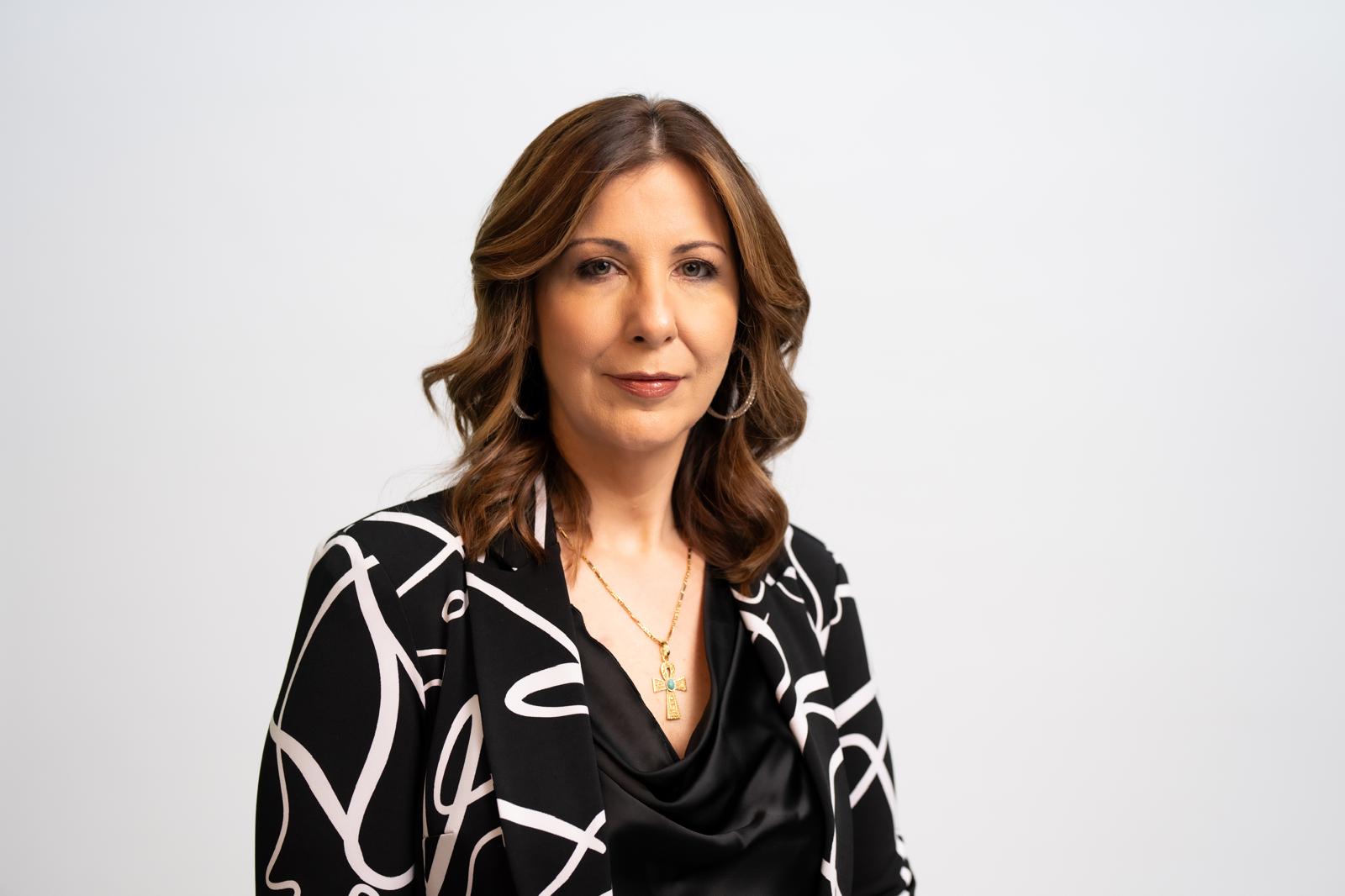“Lorena Salcedo has the skill and the ear to produce timeless recording projects. Her respect and understanding of the jazz culture shows in everything she does. As a producer she possesses a rare and delicate balance, knowing when to allow great artists to be themselves, and when to come up with amazing ideas for her artists. It’s a skill very few have.” — Celebrated trumpeter Terence Blanchard
Lorena Salcedo Valdés is an accomplished producer and manager in the world of popular music, a passionate industry leader and strategic thinker with significant experience and accomplishments particularly on the contemporary jazz and Latin scene. She is also a shining example of a woman proving herself in a traditionally male- dominated arena. From her earliest days in her native Argentina, she has steadfastly pursued a musical path that began with her own desire to perform as a percussionist and has led her to create Grammy-winning music recordings, international tours and festivals, and manage the careers of top-tier artists, particularly that of her husband, the legendary Cuban pianist Jesus “Chucho” Valdés.
She was born Lorena Noelia Salcedo in Buenos Aires 1976 and by her early teens was taking lessons in Latin percussion. At the still young age 17, she found herself drawn to the business side of the music scene and began working with music executive Jorge Ferradas at Triple Productions, a music production and talent management company, balancing office duties while continuing her musical training. Before a year had passed, she fell under the spell of a noted percussionist she caught at a major pop music concert, she made the bold decision to relocate to the United States to continue her instrumental studies.
“In the beginning of the ‘90s, I saw Luis Conte playing this huge concert in B.A. He’s this amazing Cuban percussionist who played with Madonna, James Taylor, Santana and I made the decision I had to study with him, even after I found out he was living in Los Angeles. I had been going to every jazz concert I could and made many friends— Joe Henderson, Michael Stern, Joe Heredia. They told me about L.A. So I went, and I turned 18 when I was out there.”
Salcedo found Conte and convinced him to take her on as a student, impressing him with her facility on congas. She spent a year and a half in L.A., studying, performing, and getting to know the scene. “It was my first time traveling outside of my country and I had nothing but my strong Argentinean personality, I was like really heavy metal by then! But I felt at home in the music world there. I walked into clubs like the Baked Potato and La Ve Lee, and it was like family, you know? I already knew people there.”
Returning to B.A. in 1997, Salcedo traded on her ability to speak English fluently and took on her first job outside of the music world, serving as office manager for an Italian manufacturing company doing business in Argentina. She learned various administrative process, becoming familiar with sourcing, invoicing, deadlines, taxes, and dealing with vendors and suppliers around the world. At the same time, she never faltered in her musical pursuits, continuing to study and perform on percussion. When the company restructured in 2003, Salcedo refocused her sights on music, and again found herself traveling to an overseas destination.
“When I had studied with Luis in L.A., I had learned all the rhythms, but I really needed to work better on the technique of playing percussion and everybody was telling me you have to go to Cuba. Cuban music is all about percussion and rhythm. I was 26 by then, and that was my first time to Cuba – I went to Havana, looking for a former student of Luis’s and right away I saw how different it was from L.A. I could walk everywhere, from one musician’s house to another. There’d be music on every corner, in every bar. I was really immersed in it.”
Salcedo enrolled in a state-run music school and began taking lessons with top percussion players, growing into the Havana music scene. By 2004, she had become a familiar face on the scene, and soon caught the attention of Chucho Valdés, whose longstanding, father-figure stature in Cuba — as a leading force on Cuban jazz piano and founding member of the groundbreaking jazz ensemble Irakere — was well- established, even on a global level. And yet, Valdés’s career was bound and limited by local restrictions and a somewhat faltering effort to tour and record overseas. With Salcedo’s guidance, this soon changed.
A casual, music-focused acquaintance between Salcedo and Valdés soon flowered into a romantic connection, and eventually they would marry and have a son together, Julian. But in the initial days of their relationship, Salcedo boldly took on the task of organizing all aspects of Valdés’s legacy and his continuing career, wresting control of his recordings, his music, and his performances.
“It started simply, just organizing all his tapes and video, his history – and also working on his schedule for that year. In Cuba, he was just doing some concerts but not touring the island or anything major. All the major work was out of the country. So little by little, we started to establish connections with different booking agents and festivals, and even though he was recording for Blue Note by then, we wanted to start our own label, Comanche, and we did.”
With organizational skills and tireless energy, Salcedo spearheaded a career reclamation that took a few years to gain full speed. By 2008, the album Canto a Dios was released on Comanche to widespread acclaim. A year later, Juntos Siempre (Together Forever) — a recording and series of concerts featuring Valdés reunited with his equally celebrated pianist father, Bebo — gained international success, leading to a Grammy win, Valdés’s second. (Salcedo has continued to produce winning recordings with her husband: the Grammy-winning albums Chucho’s Steps (2010) and Tribute to Irakere 40 (2016); the Grammy nominated Border Free (2013); and the Latin Grammy- winner Jazz Batá 2 (2019.) Salcedo’s efforts took on all aspects of Valdés’s career, including overseeing production of his concerts and tours, and guiding her husband’s role as artistic director of the Havana Jazz Festival (a position he had held since 1996). She expanded her duties to helping produce the historic 2009 Cuban tour of Wynton Marsalis and the Jazz at Lincoln Center Orchestra. For Salcedo, working in — and out of — Cuba between 2004 and ’09 trained her for the years that followed. “Working out of Havana made it so I would be able to work any place because in Cuba, with the government situation and other peculiarities, everything is so complicated. That was my masterclass. After working there, I could deal with everything — and it was easier.”
By 2010, Salcedo had succeeded in raising Valdés’s profile higher than it had ever been, and she herself had earned the respect of worldwide community of jazz presenters, producers and recording enterprises. That year, the Valdés family relocated to Malaga, Spain, where Salcedo set up shop as a production and management company, and built a recording studio. With the advantage of being in Europe, she did away with the confusing number of booking agents representing Valdés in different territories, and began to book him exclusively, establishing direct relationships with various festival directors and venue bookers.
Again, the results speak for themselves: through the next decade, Salcedo arranged a series of profitable, headlining tours that found Valdés working with a range of top-tier talent. Some focused on Cuban music, while others featured collaborations with other jazz world headliners, such as the 2017 Trance tour with fellow Cuban piano maestro Gonzalo Rubalcaba, and most recently in 2023 and ‘24, the Duets project with vocalist Dianne Reeves, and saxophonist Joe Lovano; and Irakere 50, the reunion tour featuring intermittently Valdés’s former bandmates, trumpeter Arturo Sandoval and saxophonist Paquito D’Rivera. Salcedo explains her philosophy of finding projects that are not always about the bottom line, but about challenging audiences and the musicians themselves. “I think in my way of working and understanding the business, being in the middle between the music and the business, I’ve learned to mix it up a little bit. Some managers or musicians care most about compensation above everything else, instead of considering building projects that might not pay at first. I mean, we always try to get the best remuneration we can, to match Chucho’s level. But he is really open to doing different projects even if it means less payment, and this has worked well with our idea of developing exciting new concepts, new collaborations, new music for the future.”
In 2016, the family relocated to Florida where Salcedo continues to steer the bus that is Chucho Valdés’s career — her role now serving as a model for many other managers looking to champion jazz artists born outside the U.S. Further (and most recent) evidence of her effect is that, only weeks after Valdés became a U.S. citizen in 2024 (a rare achievement for a Cuban national in the current political climate), he was named a Jazz Master by the National Endowment for the Arts — the nation’s top honor for jazz artists.
To call Lorena Salcedo a respected figure in the music business is an understatement.
To many, she is a paragon of dedication, energy and consistency. Her attention and focus on the music — and especially the career of her husband — has proven her value and impact. To Salcedo herself, it’s been a simple matter of maintaining musical excellence as a priority, without losing the personal touch. “I’ll admit I’m a bit of a workaholic with what I do and I try to remain a creative person inside this work. For me, it’s not about barriers or limitations, but not losing the quality of course. We always have to be concerned with the quality of the music, of the performances, supporting the musicians so they can do that. And as an organizer, I’ve tried to develop a human side to the business. Being really honest with everybody. If I have a reputation, I hope it’s a good one because of this — being human and personable with all the different artists and promoters and producers I’ve worked with.”







